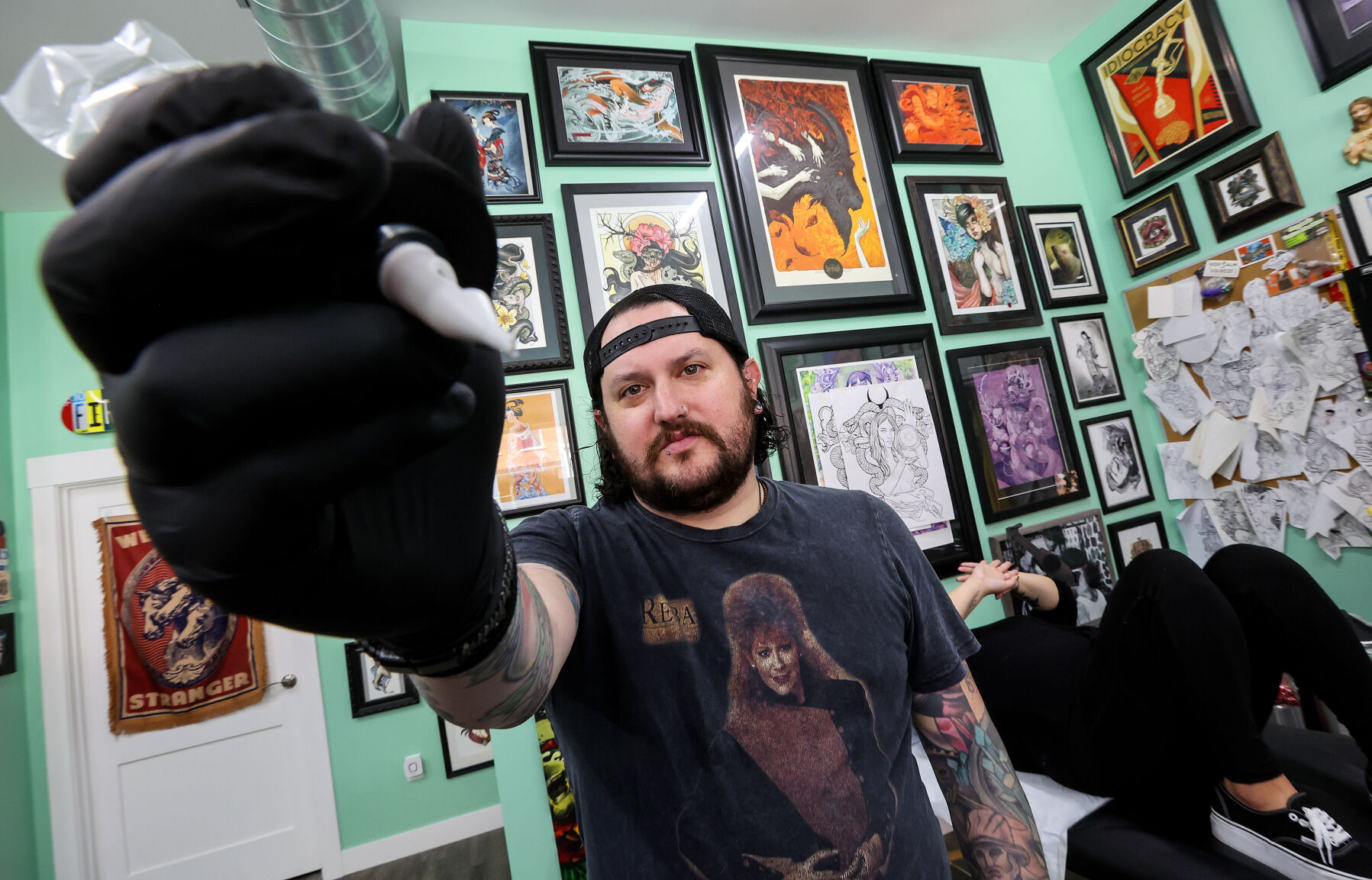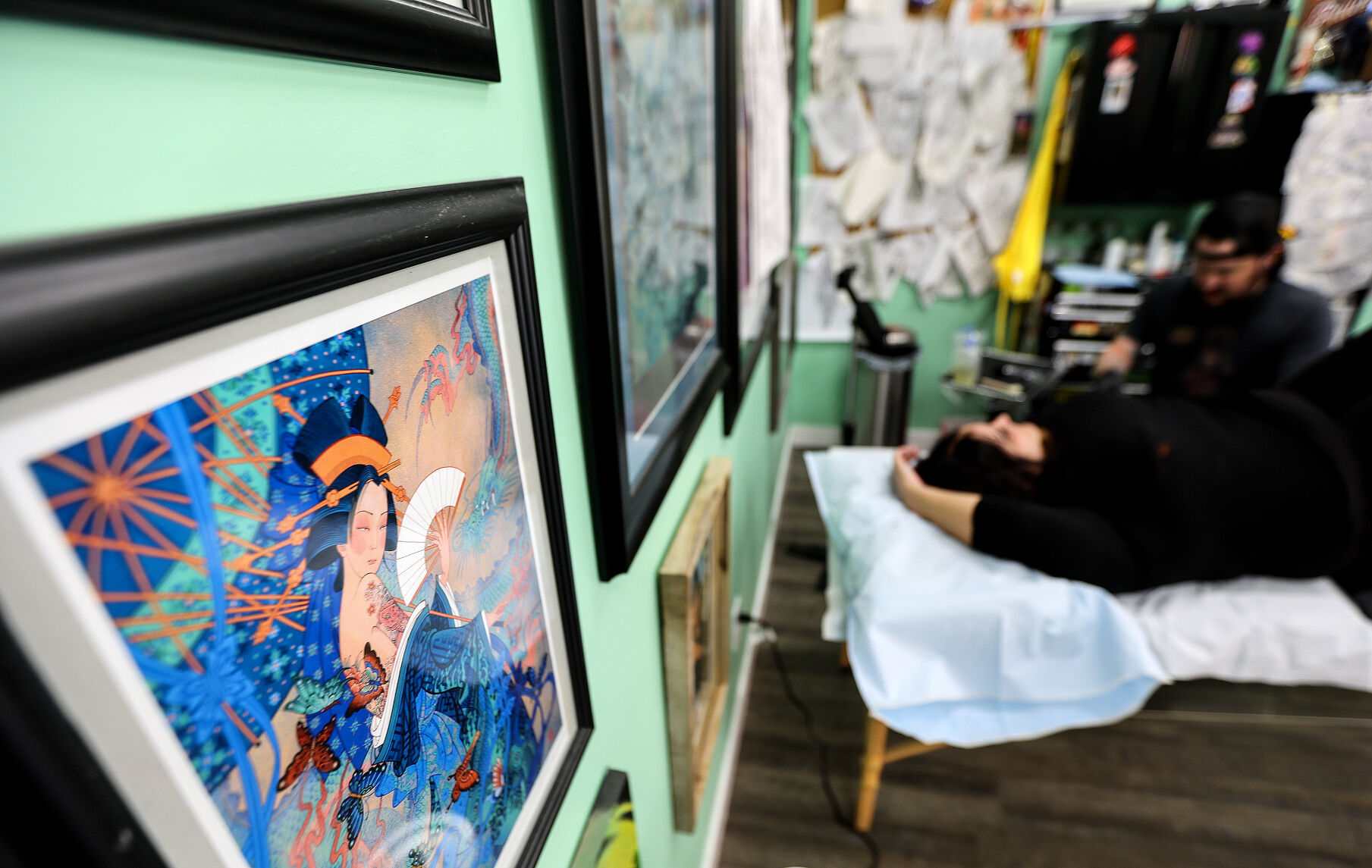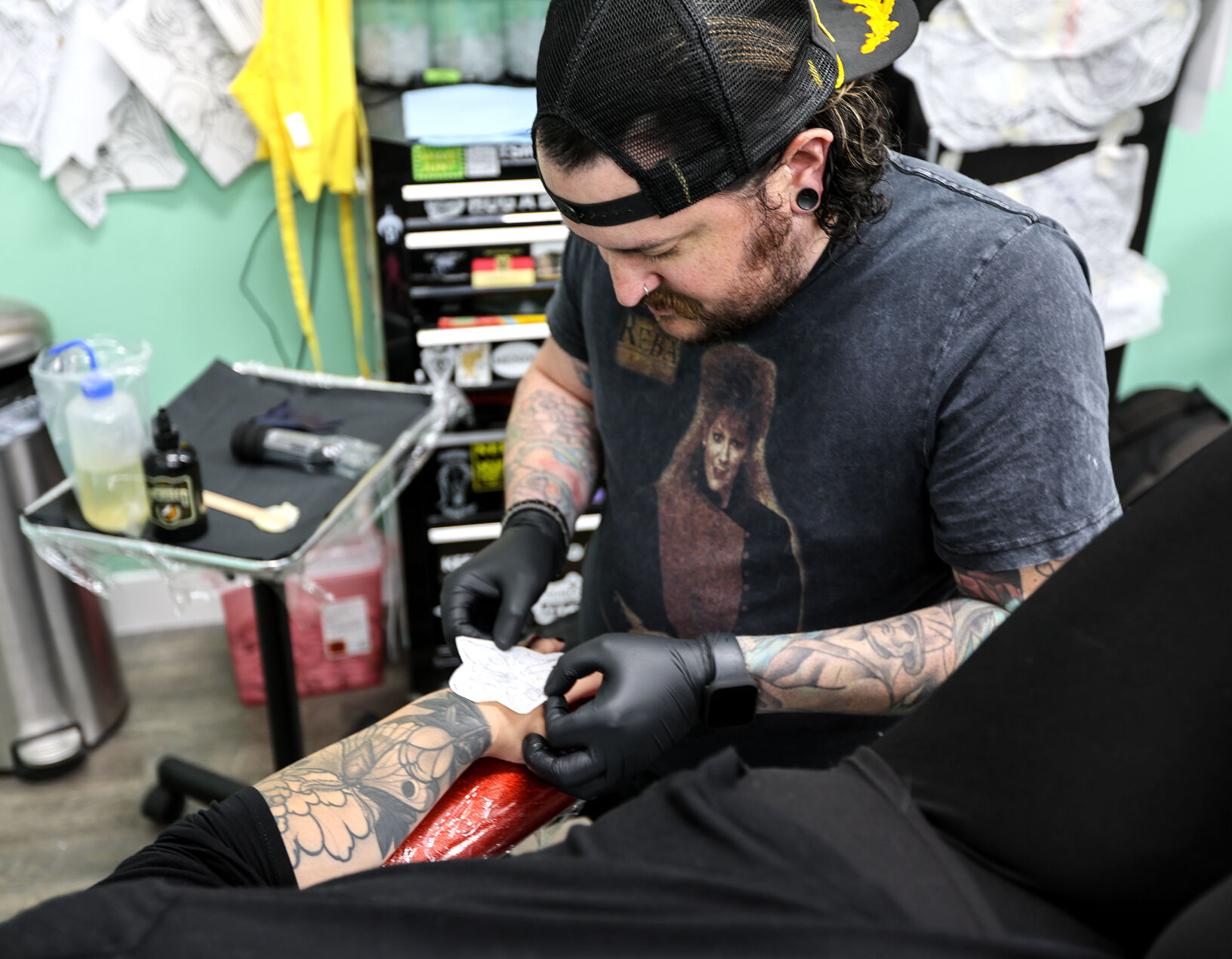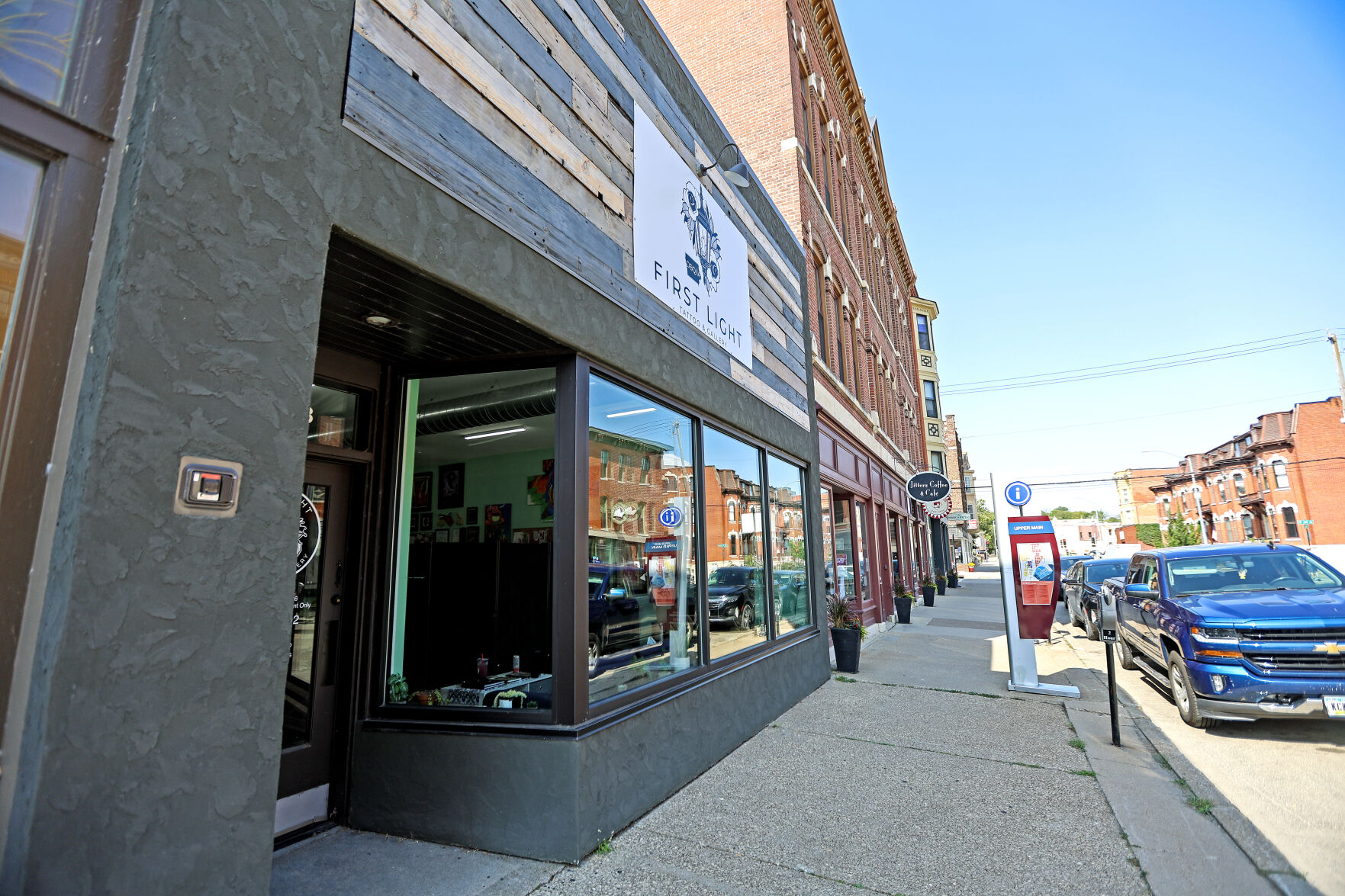To ink or not to ink? Tattoos are becoming more common among Americans as professional acceptance appears to grow — even some members of U.S. Congress have body art.
A 2023 Pew Research Center survey shows that 32% of American adults have at least one tattoo. This is nine percentage points higher than a survey the group conducted in 2010, although the group notes that it is not comparable due to having used differently methodology.
The current figure for tattooed individuals between ages 18 and 29 is 41% — a figure lower than the 30-49 age bracket, 46% of whom are inked. Only 13% of those ages 65 and older have a tattoo.
Tri-state tattoo artists say there’s a lot to think about before going under the needle. What are the qualifications of your tattoo artist? Is their establishment clean? Does the artist’s style match what you’re looking for?
Tri-state residents wanting to join in on the fun (and pain) have several tattoo parlors to choose from, including Dubuque’s First Light Tattoo & Gallery, which first opened in 2019.
Owner Alec Bauer is proud of his portfolio but is willing to be honest with customers if he thinks he’s not the right person for the job. He said he can do any style, but his specialty is neo-traditional — which uses bold colors and generally portrays floral themes, wildlife or portraits of women.
Bauer is therefore sometimes puzzled by the amount of requests he gets for fine-line tattoos, which are thinner and more delicate.
“Do your research,” Bauer said. “Find out what kind of style you’re after and find an artist (accordingly).”
Bauer said he is willing to share his honest thoughts with first-time customers if their expectations are too bold.
“If it’s their first tattoo and they want their whole throat tattooed, I’ll probably try to talk them out of it,” he said.
Eve Hendrick, owner of Ye Old Tattoo Shoppe in Platteville, Wis., has a similar perspective.
“If someone walks in with no tattoos and wants a head tat, that’s somebody we might turn away,” Hendrick said.
Hendrick also said inexperienced customers should find artists they trust and listen to their opinions on style and sizing.
Bauer, a native Dubuquer who moved back in 2019 after a stint in California, said Iowa’s tattoo regulations are reasonable on the artist.
New artists can get licensed online or by mail with Iowa Department of Inspections, Appeals and Licensing for a $75 fee. They have to complete bloodborne pathogen training and standard first-aid training. The department contracts with local sanitarians to conduct mandatory annual inspections of tattoo parlors.
In Dubuque, these inspectors are Tim Link and Sydney Althoff, both employees of the city’s Health Services Department.
Link said sanitarians such as himself generally conduct not only tattoo parlor inspections, but inspections of restaurants, tanning salons and beyond. They are trained by the state and have to periodically refresh their skills.
“A science background is usually required, and then (there is) a lot of on-the-job training, continuing education and conferences and all of that,” said Althoff.
Inspectors will look at a variety of things during tattoo shop inspections, such as a facility’s hygiene and disinfecting equipment, as well as if they follow state regulation on recordkeeping. Link said shops have to keep three years’ worth of records on everybody they have tattooed. They also are required to have their state permit posted.
“In most shops, we can probably do an inspection within an hour,” Link said. “If we mark a deficiency on the inspection … they have to respond back to us within (about) 30 days and tell us what was done to correct it.”
Link and Althoff said it is rare that they find deficiencies at local parlors. Usually, they said, it is something related to records, like an unposted permit.
“I would say most often it’s the recordkeeping,” Althoff said. “At least this year, I don’t think … we’ve had any (deficiency that was) super crazy.”
For inspectors and artists alike, tattooing is considered a medical procedure.
“Regulations primarily focus on infection control,” Link said. “When a tattoo is happening, you’re breaking the skin.”
Bauer said customers should treat the procedure seriously by making sure they’re properly fed and hydrated prior to obtaining any ink. Coming in hungover is highly discouraged, he said.
“Treat it like (going to the doctor),” Bauer said. “It is a painful procedure, I’m not going to tip toe around that.”
Hendrick said customers should be able to observe an artist’s hygiene practices.
“You should always be able to see the artist setting up,” Hendrick said. “They shouldn’t be barring you from seeing anything.”
Link said that, overall, hygiene standards have improved over the years. He said that when he started as an inspector 29 years ago, many artists would sterilize needles and reuse them.
“We just don’t see that anymore,” Link said. “Everyone we inspect is using disposable stuff.”
Link also advised against “stick and poke” or do-it-yourself tattoos, not just from professional experience, but personal. He said while growing up, he had a neighbor who gave himself several tattoos, which he later regretted, primarily due to their quality. He also said inexperienced DIY-ers might be taking a health risk.
“All our laws are on the books for patient safety,” Link said. “A tattoo artist that (has) a shop … has a significant amount of financial investment in their facility and they’re very proud of their work.”





